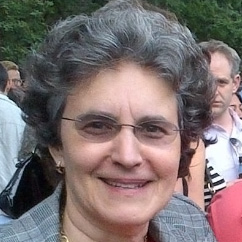 Seasoned juvenile justice advocates are well aware of the legal avenues to accomplish change, but it may be useful to review them.
Seasoned juvenile justice advocates are well aware of the legal avenues to accomplish change, but it may be useful to review them.
Public policy can be changed by the executive branch and its agencies, the legislature and the courts. Another avenue, rarely used (other than in California), is the public referendum.
Advocates must consider many criteria when they choose a strategy:
- What kind of relief is sought?
- What branch of government has the power to grant that relief?
- Which branch will be most sympathetic to the case?
- Where do the advocates have a right to be heard?
- What are the costs of pursuing change?
- How quickly is the relief needed?
- If the advocates prevail, will there be adequate funding for the change?
- If the advocates prevail, will there be adequate implementation of the change?
- Must the advocates work on more than one front or approach one branch of government?
- What role will the press, public or lobbyists play? What role do the advocates want them to play?
The executive can issue executive orders, work operationally or conduct administrative hearings addressing policy and practice.
Working directly with an agency can be the fastest and least costly way to achieve change. If you have allies in an agency or at least sympathetic ears, you may find that the authorities are not aware of the problem, are receptive to repairing it and have the power to do so, possibly fairly quickly.
Sometimes, agencies may welcome public pressure if, for example, they have been trying to get more funding or correct problems but have not been supported intra-governmentally. Or, agencies may fear public exposure of an issue and try to work cooperatively with advocates to improve conditions quietly.
David Kennedy’s work at the agency level bringing gang leaders and police departments together appears to have had very positive effects, demonstrating what can be accomplished directly. (Kennedy is director of the Center for Crime Prevention and Control at John Jay College of Criminal Justice.)
In addition to direct advocacy, advocates can present views to agencies during the public process for adopting regulations, and may thus persuade the agency to effect change.
Sometimes changing policy or practice needs a change in law. This can be a lengthy and contentious process, depending on the receptivity of the legislature to the change sought. Often professional lobbyists or advocacy organizations familiar with local conditions are able to assess the likelihood of success in the legislature.
Recent changes in laws around the country decriminalizing the use of small amounts of marijuana are examples of a trend in legislatures that will have an enormous impact in the short and long terms on juvenile justice.
Legislatures also routinely conduct hearings on agency oversight and budgets. These hearings are another opportunity for advocates to speak.
Some court cases challenging juvenile justice policies can be successful. If so, there will be an order requiring rules changes. If the case is settled there will be a consent decree requiring rules changes.
Consent decrees often do not depend on whether a legislature is prepared to change laws. A consent decree can give the court power to set standards for an agency’s conduct. Since a consent decree is a form of court order, a violation of its requirements can lead to a finding of contempt of court.
Class actions yielding consent decrees or court orders are extremely effective. Once a court takes charge of a case in this way, the case may stay under the court’s jurisdiction indefinitely, possibly overseen by a monitor, as in New York City’s “stop-and-frisk” litigation. Although litigation can be lengthy and costly, the rewards can be great.
Individual civil cases can bring monetary damages or injunctive relief to a particular plaintiff and set precedents for future cases.
Few states have easy processes to get questions on the ballot, but we all know how important public pressure and the press can be. The recent wide coverage of police shootings has woken up large segments of the population to systemic problems across the country and has animated the U.S. Justice Department to press for changes in police practices.
Similarly, in New York advocates’ pressure to “raise the age” of juveniles who can be treated as adults has won the full attention of, among others, the chief judge of New York’s highest court and now the governor.
Notwithstanding the costs, it is sometimes necessary to employ more than one strategy at a time.
Bryan Stevenson, executive director of the Equal Justice Initiative, used a two-pronged strategy when challenging juvenile life without parole as unconstitutional cruel and unusual punishment. He did hard work trying to change individual states’ laws to minimize the availability of JLWOP, well aware that the Supreme Court uses the states as a barometer to gauge whether public mores have changed sufficiently to conclude that a practice has become “cruel and unusual.”
He then pressed sympathetic cases in the U.S. Supreme Court, which ruled that mandatory JLWOP is cruel and unusual.
(Stevenson did not get the relief he sought — which was to have all JLWOP sentences for 13- and 14-year-olds declared unconstitutional. Instead, the court held that this sentence is unconstitutional for all juveniles to age 18 if it is a mandatory sentence for the crime committed. That is, it is an unconstitutional sentence if the judge has no discretion to give a lesser sentence.)
The above is a reminder that in juvenile justice, as in other areas, it is useful to weigh the legal options before expending time, effort and funding on any one strategy.
Nicole A. Gordon was executive director of the Marshall Project, chair of a New York state task force on integrating evidence-based policy and practice in criminal justice agencies and the vice president of the JEHT Foundation. She teaches law and public policy at New York University’s Wagner Graduate School of Public Service.

This email is to request the review of my cousin, Marie “Mechie” Scott’s sentencing and possible release from Muncy Prison in Muncy, PA. My cousin was only in a car during which time someone else committed a Felony. She has been locked up for over 40 years and needs to have attention brought to her case. Please contact me if you need any further information or can create a BLOG for Marie Scott.